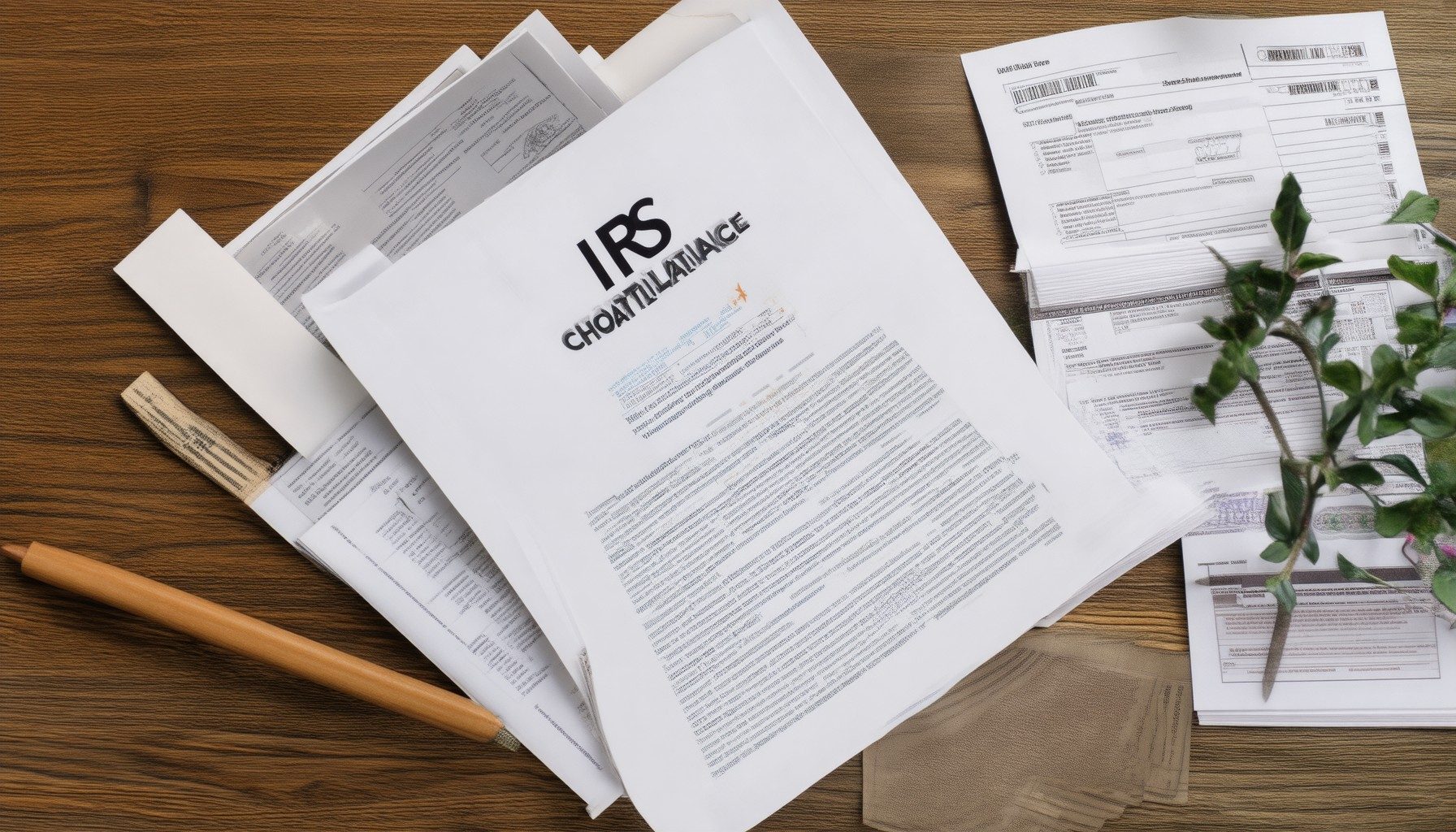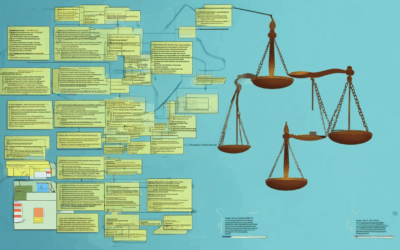Charitable tax compliance is a cornerstone of responsible giving, allowing individuals and organizations to support causes they care about while enjoying the financial benefits of their contributions. However, navigating the intricate IRS rules and tax implications can feel overwhelming, especially when aiming to maximize deductions. Whether you’re contributing to a nonprofit or making corporate gifts, understanding the nuances of charitable tax compliance is essential to ensure your efforts yield maximum impact and meet regulatory standards. This comprehensive guide delves into IRS rules for charitable donations, tax deductions, and strategies to optimize your giving while staying compliant. From understanding contribution limits to leveraging tax deductions effectively, this article serves as your go-to resource for mastering the ins and outs of charitable tax compliance. By exploring key aspects such as verifying donations, avoiding IRS audits, and claiming deductions without proof, this guide empowers you to make informed decisions that align with your philanthropic goals and financial objectives. Whether you’re a seasoned donor or new to charitable giving, this article offers actionable insights and practical advice to help you navigate the complexities of charitable tax compliance with confidence and clarity.

IRS Rules for Charitable Donations
Your deduction for charitable contributions generally cannot exceed 60% of your adjusted gross income (AGI), but certain circumstances may impose lower limits, such as 20%, 30%, or 50%. These rules apply to most individuals, though specific thresholds vary depending on your filing status and the type of contribution.
- Types of Contributions:
- Cash donations to qualified organizations
- Property donations (e.g., clothing, vehicles, real estate)
- In-kind gifts (e.g., food, supplies)
- Services rendered (e.g., volunteer work)
- Itemized vs. Standard Deductions:
- Itemized deductions require detailed records and receipts
- Standard deductions (e.g., $300 for cash contributions) are simpler
- Documentation Requirements:
- Record all donations in a receipt book or digital tracker
- Attach receipts to your tax return for substantiation
- For non-cash contributions, obtain a qualified appraisal if valued over $500
- Special Cases and Limits:
- IRA Rollover: Contributions from IRAs count toward the deduction limit
- Vehicle Donations: Market value at sale minus mileage deduction limits
- Foreign Contributions: Must go through registered U.S. charities
- Additional Resources:
- Nonprofit Fundraising Strategies – Learn effective methods
- Tax-Exempt Status Requirements – Ensure compliance
- IRS Publication 526 – Detailed charitable contributions guide
What is the New Tax Rule on Charitable Donations?
The Internal Revenue Service (IRS) has introduced updated guidelines for charitable donations, effective January 1, 2025. These rules aim to streamline deductions while ensuring transparency and compliance for donors.
Key Tax Limits
- Cash donations to public charities are now capped at 60% of your Adjusted Gross Income (AGI) . This applies to contributions made directly to qualified 501(c)(3) organizations.
- Appreciated property donations, such as stocks or real estate, are limited to 30% of your AGI . Non-appreciated assets, like cash or uncooked goods, still fall under the 60% cap.
- Contributions to private foundations or donor-advised funds may offer lower limits, depending on the foundation’s specific guidelines and IRS approval.
Documentation Requirements
To claim these deductions, donors must maintain thorough records, including:
- A receipt from the charity for cash donations over $250
- A qualified appraisal for property donations valued over $500
- Records of contributions made via electronic transfers
State-Specific Rules
Some states may impose additional requirements or caps on charitable donations. Check with your state Department of Revenue for any supplementary guidelines.
Strategic Giving Tips
- Consider gifting appreciated assets to maximize your deduction percentage
- Combine multiple donation types (cash + property) to optimize your AGI utilization
- Consult with a tax professional to ensure compliance and maximize benefits
NPO Expert recommends utilizing our complete guide to tax deductions for nonprofits for further details on optimizing your charitable giving strategy.

Requirements for an Income Tax Charitable Deduction
To claim a charitable deduction on your income tax return, you must meet specific requirements. Here’s a breakdown of the key criteria:
Eligible Contributions:
- Cash donations of $250 or more to qualified organizations require a receipt from the charity or payroll deduction records.
- Non-cash contributions (such as stocks, property, or goods) may also qualify, subject to specific rules and documentation.
- Donations to public charities, religious organizations, educational institutions, and other qualifying entities are typically eligible.
- Contributions to donor-advised funds or private foundations may have additional documentation requirements.
Documentation Requirements: – A written receipt or acknowledgment letter from the charity must be obtained for donations of $250 or more. – For non-cash contributions, a qualified appraisal may be required, depending on the type of asset contributed. – Properly complete Form 1098 or Form 1099 (depending on the type of contribution) must be filed with your tax return.
Timing and Limits: – Contributions must be made on or before the tax return deadline, generally April 15 (or April 18 in 2025). – There are limits on how much you can deduct, based on your adjusted gross income and the type of contribution.
Additional Considerations: – Certain types of contributions may carry special rules, such as restrictions on foreign donations or specific guidelines for vehicle donations. – Consulting with a tax professional is recommended to ensure compliance with all regulations and maximize your deduction.
For more details, visit our NPO Expert resource hub, which provides comprehensive guides on nonprofit management and tax optimization strategies.

How Does the IRS Verify Charitable Donations?
The IRS verifies charitable donations through a structured process that ensures transparency and compliance. Here’s a breakdown of the verification methods:
- Record Keeping :
- Maintain detailed records for all donations, regardless of the amount. These records should include the donor’s name, the donation amount, the date of the contribution, and the name of the charitable organization.
- Receipts for Monetary Contributions :
- For cash or check donations, retain a receipt or a bank statement as proof of the transaction. This serves as a record of the contribution.
- Non-Cash Contributions :
- For donations of goods, services, or property, obtain a receipt from the qualified organization. This receipt should specify the type and value of the contribution.
- Tax Forms :
- The IRS mandates the use of specific tax forms for reporting large contributions:
- Form 1098-T : Required for donations made to educational institutions.
- Form 1099-C : Issued by the charity for contributions of property, goods, or services totaling $250 or more.
- Acknowledgment Letters :
- Charitable organizations are legally required to provide an acknowledgment letter for donations exceeding $250. This letter confirms the donation and may include the organization’s tax ID number.
- Electronic Donations :
- Contributions made electronically, such as through platforms like PayPal, should be confirmed by an email or a digital receipt from the payment processor.
By adhering to these guidelines, donors can ensure their contributions are properly documented and verified by the IRS, facilitating smooth tax filings and compliance with federal regulations.
What Triggers an IRS Audit on Charitable Donations?
An IRS audit on charitable donations can be triggered by several factors, particularly if the donations appear excessive relative to your income or if there are discrepancies in reported contributions. Here are the primary triggers:
- Excessive Contributions : The IRS flags donations that significantly exceed the average contribution rate for individuals with similar income levels. Exceeding these thresholds can raise red flags.
- Contribution Limits : Charitable deductions are capped at 60% of your Adjusted Gross Income (AGI) for cash donations and 30% for non-cash assets like stocks or property. Exceeding these limits can lead to scrutiny.
- Type of Donations : The IRS monitors contributions to specific types of organizations, such as private foundations or foreign charities, which may have different reporting requirements.
- Frequency of Donations : Sudden spikes in donations, especially in one year, can attract attention. Consistent, moderate contributions are less likely to trigger an audit.
- State Tax Laws : Some states have unique rules that may conflict with federal guidelines, potentially leading to audits if donors are unaware of both sets of regulations.
- Documentation Issues : Poor record-keeping can hinder the IRS’s ability to verify contributions, increasing the likelihood of an audit.
To minimize audit risks, consider consulting a tax professional and maintaining thorough documentation of all donations.

Charitable Contribution Deductions Without Proof
If you wish to claim a charitable contribution deduction on your tax return, understanding the IRS regulations is crucial. Here’s a breakdown of how much you can claim without proof:
- Donations Below $250:** According to IRS regulations, if your contribution is $250 or less, you may not need written proof. However, it’s advisable to retain receipts for all donations, regardless of size, for potential future reference.
- Donations Above $250:** For contributions exceeding $250, you must obtain a written acknowledgment from the charity. This document should detail the amount donated and confirm its eligibility for tax deduction.
- Types of Contributions:** Cash donations are generally easier to track, but non-cash contributions (such as goods or services) also qualify, provided they meet IRS criteria.
- Charity Recognition:** Ensure the charity is recognized as tax-exempt by the IRS, as contributions to unverified organizations may not be deductible.
Remember, maintaining accurate records is always prudent, even if not legally required. This ensures compliance and provides evidence if further documentation is requested by tax authorities.





0 Comments